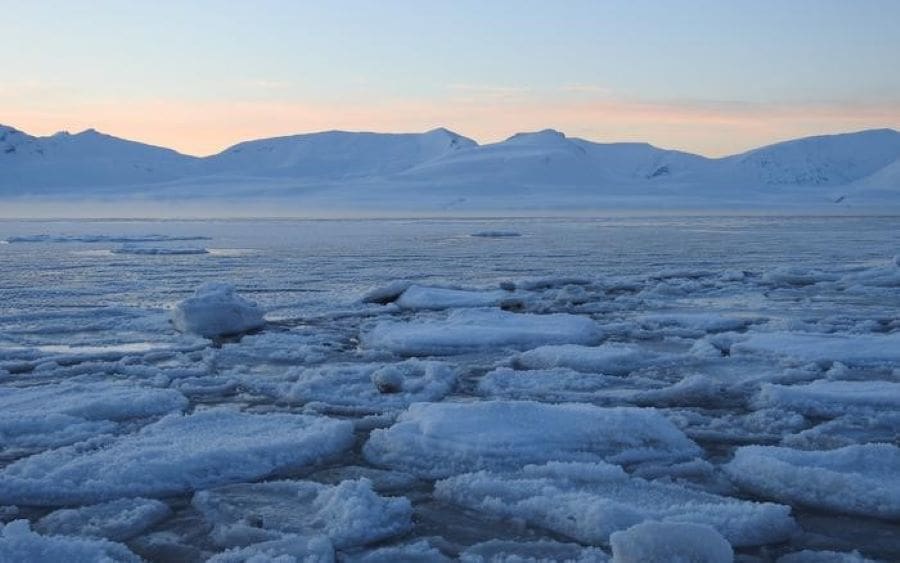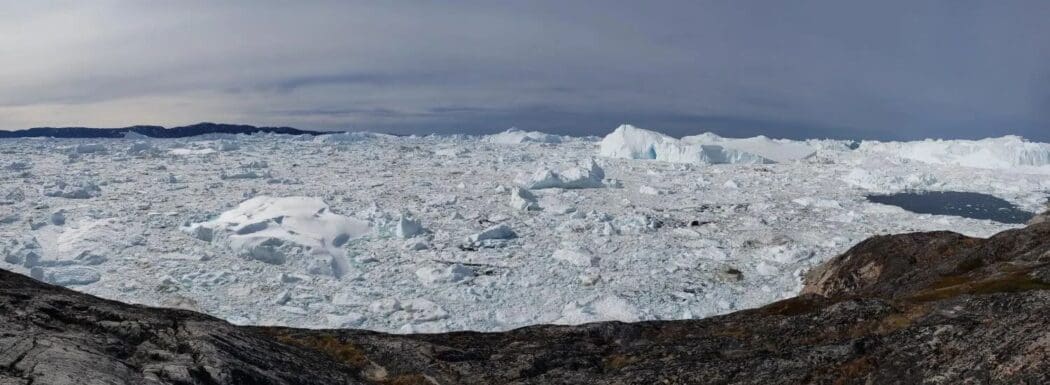Summary:
Global warming is reshaping the Arctic at an alarming rate, with projections indicating that by 2100, the region could become unrecognizable.
A new review paper, published in Science, warns that under current global climate policies, temperatures could rise by 2.7 degrees Celsius above pre-industrial levels, leading to extreme environmental shifts. The study, led by Julienne Stroeve of the National Snow and Ice Data Center, outlines the consequences, including ice-free Arctic summers, accelerating Greenland Ice Sheet melt, and widespread permafrost loss. These changes will significantly impact ecosystems, infrastructure, and Arctic communities.
The authors based their findings on the latest climate assessments, reinforcing the urgency of stronger emissions reductions.

An Arctic ‘beyond recognition’ by 2100
In 2024, annual average global air temperatures surpassed 1.5 degrees Celsius above pre-industrial levels for the first time, triggering extreme weather events like record-breaking rainfall and flooding events in the Sahara Desert and extreme summer heat waves across the planet. However, global warming will not stop at this level.
Based on the current pledges of countries for limiting their emissions of greenhouse gases, global temperatures are projected to reach 2.7 degrees Celsius beyond pre-industrial levels by the end of this century. This scenario would dramatically reshape the Arctic, the fastest-warming region of Earth.
A new review paper, published in Science, highlights these changes and their far-reaching implications. The paper, “Disappearing landscapes: The Arctic at +2.7°C global warming,” was led by Julienne Stroeve, senior research scientist at the National Snow and Ice Data Center (NSIDC) and professor at the Centre for Earth Observation Science at the University of Manitoba.
“The Arctic is warming at four times the rate of the rest of the planet,” said Stroeve. “At 2.7 degrees Celsius of global warming, we will see more extreme and cascading impacts in this region than elsewhere, including sea-ice-free Arctic summers, accelerated melting of the Greenland Ice Sheet, widespread permafrost loss and more extreme air temperatures. These changes will devastate infrastructure, ecosystems, vulnerable communities and wildlife.”
In the review paper, the authors used the Sixth Assessment Report of the United Nations Intergovernmental Panel on Climate Change as a starting point. They updated knowledge from the report about three specific areas of the Arctic environment, including sea ice, the Greenland Ice Sheet and permafrost, focusing on existing studies that show consensus about the changes that will take place in the region.
Under 2.7 degrees Celsius of warming, the Arctic region is likely to experience the following effects:
- Virtually every day of the year will have air temperatures exceeding pre-industrial temperature extremes.
- The Arctic Ocean will be free of sea ice for several months each summer.
- The area of the Greenland Ice Sheet that experiences more than a month of surface temperatures above 0 degrees Celsius will quadruple compared with pre-industrial conditions, causing global sea levels to rise faster.
- Surface-level permafrost will decrease by 50% of pre-industrial levels.
“Our paper shows that, already today, mankind has the power to wipe out entire landscapes from the surface of our planet,” said Dirk Notz, professor for polar research at the University of Hamburg and co-author of the study. “It’d be amazing if we could become more aware of this power and the responsibility that goes with it, as the future of the Arctic truly lies in our hands.”
Other co-authors on the paper included Jackie Dawson of the University of Ottawa, Edward A.G. Schuur of Northern Arizona University, Dorthe Dahl-Jensen of the University of Manitoba and University of Copenhagen, and Céline Giesse of the University of Hamburg.
***
Funding came from several sources, with the largest piece of Stroeve’s funding from the Canada 150 Research Chairs Program, C150 grant 50296. Data and information from NSIDC’s Sea Ice Today and Ice Sheets Today projects were used in the review.
Journal Reference:
Julienne C. Stroeve et al., ‘Disappearing landscapes: The Arctic at +2.7°C global warming’, Science 387, 616-621(2025). DOI: 10.1126/science.ads1549
Article Source:
Press Release/Material by National Snow and Ice Data Center | University of Colorado at Boulder
Featured image: Icebergs in the Ilulissat Icefjord, Greenland Credit: Megan Thompson-Munson | CIRES | CC BY 4.0




